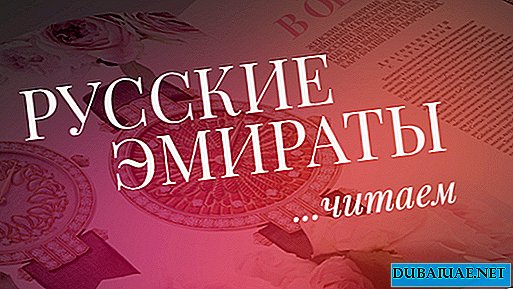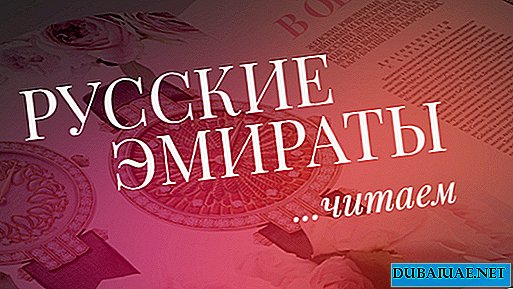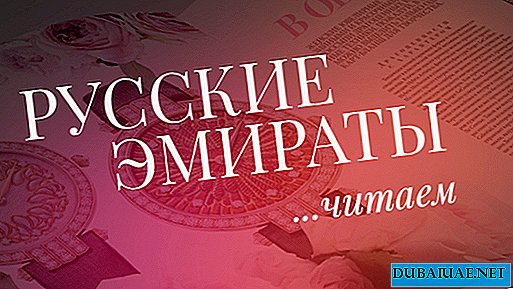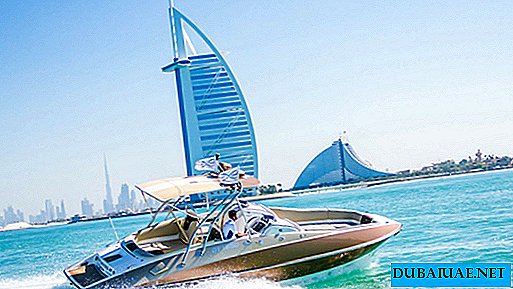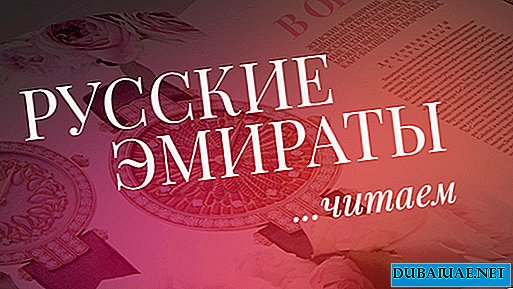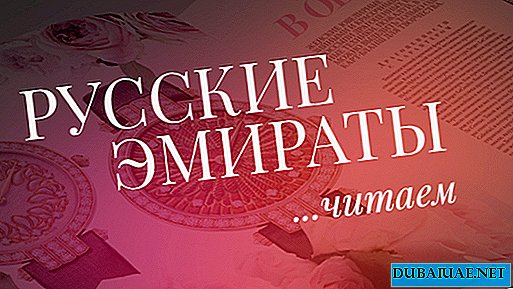MOHAMMED AL FAHIM, PRESIDENT OF PARIS GALLERY, IS THE ONLY BOSS IN THE WORLD WHO PAYS FOR THEIR OPERATIONAL FLIGHTS FROM OWN POCKET, HAS BEEN FURTHY WITHOUT SAFE. WHAT DOES HIS ONE OF THE LITTLE EMPLOYERS ABOUT WHICH THE EMPLOYEES EMPLOYEES WRITE IN SOCIAL NETWORKS, Proud TO WORK TOGETHER WITH IT. According to them, he is a man of words and honor, a visionary and a wise leader, leading a team. We met with him to talk about his views on life and find out what qualities led him to success.
Mohammed, when you were just starting your business, did you expect Paris Gallery to become one of the most successful retail chains in the Middle East?
Mohammed: We had ambitions from the very beginning. We wanted to be the first in what we do. But other circumstances contributed to this - the development of the global economy, new technologies, the rapid growth of the luxury industry around the world, and especially in the UAE, which was facilitated by comprehensive state support. All this led to our evolution. We ourselves would not be able to achieve such results.
How did it all start?
Mohammed: My father always wanted to open a chain of luxury retail stores. This was a real challenge, since there was nothing like that in the Middle East at that time - each business was highly specialized: watches, jewelry, etc. What is luxury? After all, the concept itself is very multifaceted. Everything can be luxurious - beauty, travel, leisure. We have defined it for ourselves in the form of external beauty - how a person looks, what makeup and perfume he uses, what watches, accessories and clothes he wears, in a word, those attributes that give him confidence. In this area we remain.
And where was the very first store opened?
Mohammed: At the BurJuman Center in 2004. Moreover, we immediately introduced international standards as to how everything should look in shop windows and what level of service a customer receives.
To date, about 80 stores have been opened in the United Arab Emirates, Saudi Arabia, Kuwait, Syria and Lebanon. Is there a desire to go beyond the borders of the Middle East?
Mohammed: Yes, there is such a desire. If circumstances contribute to this, we would like to open representative offices in London, Paris, Moscow, Los Angeles, in a word, in all the most important cities in the world. We are ambitious and confident that our company can successfully compete in the most promising world markets.
And why, by the way, was such a name chosen - Paris Gallery?
Mohammed: Gallery is an exhibition complex, a big world. We wanted to be called a gallery, because in the minds of people it is associated with a luxurious and beautiful place where a lot of goods are presented. And Paris Gallery is just a catchy and catchy name that attracts attention.
Last year, you received the award as the best CEO (CEO - Approx. Ed.) Of the year. What do you think your personality traits led to?
Mohammed: It seems to me that people who respect me, these qualities are visible better. But I think I just try to remain myself in all situations and do not adapt to circumstances. No matter where I am - at a working meeting or on vacation - I do not change. If my children see me in the office at work, they won’t notice much difference. I would like to see the same quality in others.
How well do you know people?
Mohammed: It is hard to say. We all feel each other somehow. Sometimes we make mistakes, but most often our intuition does not fail us. When I first meet a person, I always approach him with an open heart. I believe that if you create all the conditions and give a person a chance, he will be able to become someone. Sometimes, however, it happens that a person does not live up to your expectations, but, unfortunately, nothing can already be corrected for such people.
Tell us how your working day usually goes. 
Mohammed: Typical or perfect? If typical, then, as a rule, these are meetings with management, government meetings or charity events. I am a member of various public organizations and often have to attend social events where I can spend half a day. In the Emirates, the world is very close, everyone knows each other, so it is often impossible to refuse to meet. But this is my typical day, not an ideal one. I would like to pay more attention to certain areas of my life - myself, my wife, children, friends, work, travel. Seven years ago, I organized my schedule in such a way as to devote the necessary amount of time to each of these areas.
Do you love to travel ?
Mohammed: Yes and no. I have to explain. I like to travel, but not all types of travel are suitable for me. I am attracted only to certain places where I like to return. During the month about 3-4 times I have to fly to different countries on business, and the road often tires. At least once a year I try to travel somewhere with my family. But when I travel alone, it is a completely different state. I’m going to calm places, mainly to the mountains or to small towns that no one knows about. Or in quiet cozy villages. There are such in Europe and the Middle East. I love walking in the mountains, I love hunting, I love it when there is no satellite connection, the phone is silent, there are not even newspapers, and you can completely relax and enjoy nature. Four to five such days completely restore me, and I am again returning to duty.
Was there a person in your life who has most influenced the formation of your character?
Mohammed: I would say that the ruler of Dubai, Sheikh Mohammed bin Rashid Al Maktoum, influenced me most of all - his type of thinking and vision of the future, his approach to project implementation. We all learn to one degree or another from him. Also, at different stages of my life, I always learn from the prophet Mohamed, based on what he said and how he advised to live.
As head of the Paris Gallery, what do you see as your main role?
Mohammed: First of all, my role is to provide employees with the right working environment so that they can be creative and productive. Not to force them to do something, but to do everything to make them comfortable working. I want to hope that they enjoy working at the Paris Gallery. And the awards that are presented to me are important not so much for me as for my team, since any recognition is an indication of the correctness of the chosen path. This gives employees confidence in the future, they begin to be proud of their place of work. Moreover, as a business structure, we want to be on an equal footing with all international retail chains.
What do you do to create a harmonious and effective working environment in your team?
Mohammed: Employees should feel that they are treated on an equal footing. They know that if a company brings more profit this year, then everyone will receive a greater bonus at the end of the year. When people understand this, when they see that this is what happens in the end, they begin to work better and believe in the company. Any extra expenses of the management, such as first-class tickets, naturally reduce the size of bonuses. In our company, all policies are equally applied to CEOs and to the lowest personnel - there are no differences. For example, we have free parking in an office building, but there are not enough parking spaces. And we selectively, through a random secret combination, allocate places for the quarter: someone gets a place, someone does not. This also applies to me and the members of the board of directors. Therefore, I often have to pay out of pocket, unless, of course, I want to park the car inside the building, and not outside where it is too hot. Yes, I will spend my money, but I will earn the respect of the staff.
This is an honest approach. Many times it happened that when someone left or left to work in another country, for example, Canada or the USA, then after some time he would still come back, since after Paris Gallery he could no longer work anywhere else. I always ask: "Why did you come back?". And, as a rule, I get the same answer: "Unfriendly work environment."
When you get to the Paris Gallery, you really feel some special attitude from the staff, even if you are not going to buy anything.
Mohammed: We have a principle: all visitors are perceived as guests, not as buyers. This, again, very well explains the Arab mentality. For example, in Japan, the buyer is seen as a god. In the West, they believe that the buyer is the king. And in Arabic culture, the buyer is a guest. Feel the difference? God, king, guest. It is based on the same principle - to treat a person with respect. But the Japanese dedicate all the best to the gods, in the West, all the best, as a rule, goes to the king or ruler, and in the Middle East to the guest. We try to make our guests as comfortable as possible, and when they leave the gallery, they only have good and positive feelings.
What do you think is the main difference between managerial approaches in the Arab world and in the European?
Mohammed: In the Middle East, we sometimes call management leadership. But it is rather a mix of both concepts, since everything is tied to interaction with people. When communicating with another person, you always touch on the layer of his cultural background. We have more than 14 different nationalities in our company, and we cannot apply a single leadership style, as different people were brought up taking into account different cultural norms. Therefore, our style is primarily an individual approach to each.
But the European management style is less sensitive to such things, it is more direct and tied to accepted instructions. In Europe, the principle of "right-not right" dominates, and in the Middle East - "shame-honor." In the West, you need to prove that you did everything properly and did not violate any norms. This is how the judicial system is organized there. In the Middle East, everything is different - your reputation and honor are most important here. If I lose my honor, I’ll lose my face. Therefore, I will do everything in order not to drop my dignity. For then it can be very, very difficult to restore it.
What could you advise to young managers who are just starting their own business and would like to succeed?
Mohammed: Management is primarily communication with people, so you should always do what you would like you to do with you.
Put yourself in the shoes of another and be honest with yourself. If you are a boss - be patient, if a subordinate - try to understand the situation, look at it through the eyes of management. When you do honor, you do the right thing and do the best you can. If you act unfairly towards another, then even if you later leave the company, it will still remain with you for life. So which way is better: to feel calm or to suffer remorse? Therefore, my main advice is always to do what is right.


